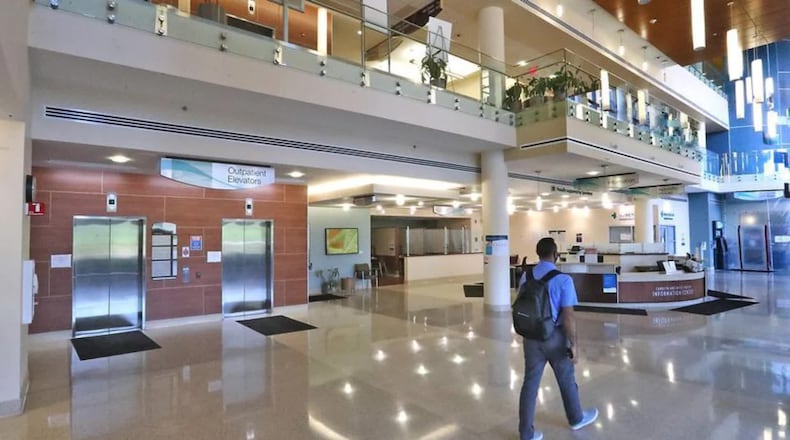The new policy allows employees who have tested positive and are asymptomatic or have mild symptoms to return back to work without a negative test or a five-day quarantine regardless of vaccination status.
However, those employees will be required to wear masks at all times and practice strict social distancing measures, according to a statement from Mercy Health, which manages the Springfield hospital.
Those employees will be required to wear an N95 mask at all times, for a minimum of 10 days following the onset of symptoms. They are also prohibited from any contact with co-workers or patients if they are not wearing a mask, said Jennifer Robinson, a Public Relations and Communications Manager for Mercy Health.
Those employees will also be taken off premises or to isolated areas if they need to take their masks of for breaks or meals, Robinson added.
The update is not just limited to Springfield Regional, but other Mercy Health properties.
“Out of an abundance of caution, COVID-19 positive employees will also not work with immunocompromised patients. By following these safety protocols and strictly adhering to (personal protection equipment) guidelines, we can continue to safely care for our patients without posing additional risk,” she said in an email to this news organization.
A sharp rise in cases has caused Mercy Health to see its highest number of COVID-19 related hospitalizations since the start of the pandemic.
“Given the current volume in our communities and the severe strain on our staff and facilities, we are updating our employee return-to-work guidelines for COVID-19 positive employees who are asymptomatic or have mild symptoms. If those employees feel well enough to fulfill their role, they can now return to work as soon as they choose to do so,” Robinson stated.
In the last seven days the Centers for Disease Control and Prevention reported an increase of 156 COVID-19 related hospitalizations in Clark County. There has also been a nearly 25% increase in local COVID related hospitalizations since the start of the year, said Nate Smith, a Communications Coordinator for the Clark County Combined Health District.
Smith said that hospitals such as Springfield Regional have implement crisis standards of care in order to make sure that other services can continue amid the spike in hospitalizations.
Representatives of the combined health district say that they pose the question of “what would you have the hospital do at this point” to those who may be concerned over the recent update in Springfield Regional’s return-to-work guidelines.
Smith said, while acknowledging that it is not an ideal situation, that these new crisis standards have to be viewed as a way of care moving forward amid a spike in new COVID cases and a jump in hospitalizations.
Robinson said in an email to this news organization that “while we are taking extraordinary steps to best serve our patients during this crisis period, the health and safety of our patients and employees remains our priority, to ensure we can continue to care for all patients, while maintaining our commitment to quality.
In addition to the updated return-to-work guidelines, the Supreme Court has allowed a vaccine mandate that is focused on healthcare workers to continue.
Springfield Regional previously did not require employees to get the COVID vaccine, but had strongly encouraged it. Robinson did not share what the hospital’s vaccine policy will look like moving forward, but instead referred to a recent statement from the American Hospital Association.
Rick Pollack, president and CEO of the AHA, said in a statement on Thursday regarding the vaccine mandate that “now that the Supreme Court ruling has lifted the ban on the CMS vaccine mandate, the AHA will work with the hospital field to find ways to comply that balances that requirement with the need to retain a sufficient workforce to meet the needs of their patients.”
About the Author

